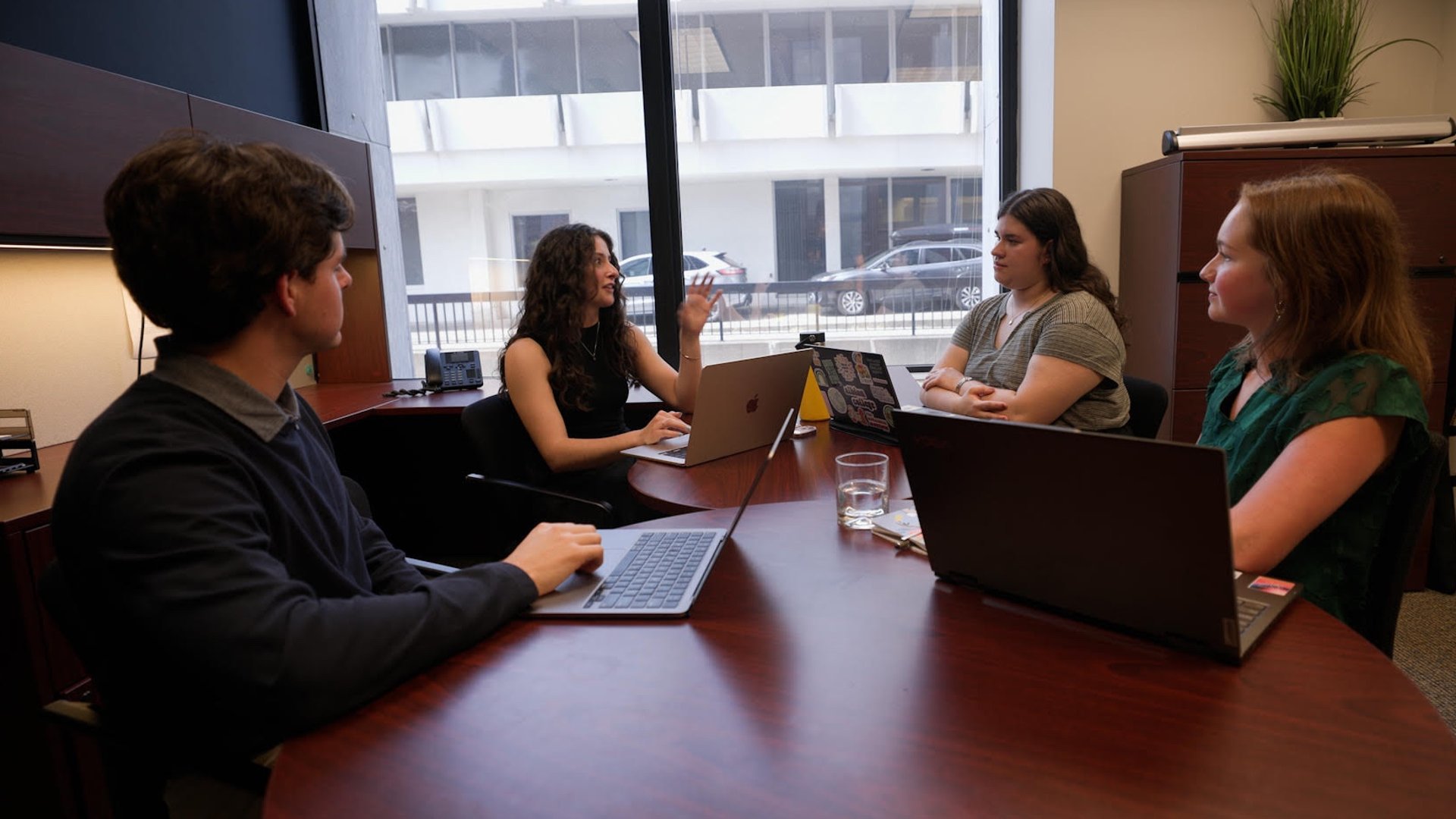By Divya Abhat, EPIIC Web Team
At Albion College, a liberal arts college in south-central Michigan, experiential or hands-on learning is key. Regardless of academic background, students engage in interdisciplinary projects—from computer science to microbiology, robotics to drug design—all aimed at preparing them for the workforce.
But Albion is a small, rural town, and students often face logistical challenges their big-city peers don’t—like how to get to an off-campus job without public transportation. These challenges underscore a broader truth: For rural colleges, forging and sustaining industry partnerships requires navigating limited local infrastructure, smaller labor markets, and fewer regional employers—making such collaborations both more difficult and more essential.
Albion is part of EPIIC’s Connect Four cohort, along with Canisius University in Buffalo, New York; NorthWest Arkansas Community College; and Roanoke College. These small institutions share common hurdles when trying to train students or establish sustainable partnerships with local industry.
Like most EPIIC cohorts, Connect Four is working toward four overarching goals: building capacity to sustain external partnerships; expanding institutional networks; improving stakeholder communications; and turning one-off engagements into repeatable, scalable models.
And, like other EPIIC groups, progress is already underway.
Campus Activities
At Canisius, a private Catholic university, faculty collaborate with local industry and government agencies to build strong ties. The school supports experiential learning through its Canisius University Experiential Learning Fund, which helps students pursue internships and career-aligned projects. Canisius also hosts workforce education workshops and identifies research opportunities that provide students with hands-on experience.
“EPIIC has helped Canisius connect with local Buffalo companies and place student interns in roles that range from data analysts for healthcare data, to chemists applying AI in novel ways to extend the boundaries of x-ray crystallography,” says Justin Del Vecchio, Assistant Professor and EPIIC PI.
Roanoke College, too, is investing in campus-wide efforts to strengthen external partnerships. The college is focused on cultivating STEM-H partnerships to reimagine teaching and service in ways that drive innovation and workforce readiness and provide new experiential learning opportunities for its students. Its EPIIC Fellows and Scholars programs focus on building a campus culture of partnership-building by establishing a community of practice that includes faculty, staff, and students and providing resources that campus members can use to build community partnerships.
“EPIIC has enabled Roanoke to develop a partnership-driven approach that strengthens regional collaborations and expands community engagement by the college and its partners,” says Len Pysh, Biology professor and EPIIC PI.
In the South, Northwest Arkansas Community College (NWACC), the largest community college in the state, has provided professional development for faculty and staff to aid in solidifying partnerships with industry. NWACC recently hosted a biotechnology symposium where industry, government, non-profit, and education institutions were able to discuss the future of biotechnology in Arkansas, learn about current biotechnology research conducted using the CURE model, see how a pipeline is being developed to provide a skilled workforce, and discover how partnerships between the different groups was vital for the success of the biotechnology environment.
“EPIIC has not only helped NWACC strengthen its connection to partners in the biotech industry but also is playing an integral role in connecting the entire Arkansas biotech ecosystem,” says Gary Bates, biology professor and EPIIC PI.
Back in Michigan, Albion College has taken a liberal arts-centered approach to partnership-building. In 2021, it launched the Albion College Community Collaborative (AC3), a hands-on learning initiative rooted in values of community engagement and interdisciplinary problem-solving.
“The purpose is to cultivate key liberal arts skills such as critical thinking and the ability to tackle complex, cross-disciplinary problems, all with a focus on public service,” says Vicki Baker, Associate Dean of Strategic Partnership and Innovation. Baker founded AC3, with the support of campus leaders, to create a more integrated, civic-minded model of engagement.
Structured like an experiential learning lab and modeled after a consulting firm, AC3 positions students as management consultants working with businesses, nonprofits, government agencies, and healthcare providers.
“Together, they address real-world challenges by developing innovative solutions to open-ended problems, while also anticipating future needs,” Baker says. With support from EPIIC, AC3 has helped Albion attract new industry partners including Ford Motor Company, TransPharm, CreateMyTee, and Grand Rapids Symphony.
Infrastructure Challenges
Despite these promising efforts, Connect Four institutions face steep infrastructure limitations. “We don’t have the infrastructure,” says Craig Streu, a biochemistry professor at Albion and EPIIC PI. “Every time we do these things, the hurdles are just massive.”
One such hurdle: faculty incentives. Many faculty members hesitate to invest time in external partnerships, which often don’t contribute to tenure or promotion. In response, Albion is updating its tenure policy to value not only high-impact publications but also partnership-building efforts.
The cohort meets monthly to address such challenges, exchange ideas, learn from expert consultants, and co-develop a universal toolkit to help other small colleges do the same.
So what does success look like? “Success would be an institutional culture of regional industrial partnerships,” says Streu. He emphasizes the need for a feedback loop “to make sure what we’re providing as an educational institution is helping develop our local regional workforce.”
While each institution has made meaningful progress since receiving the three-year award in 2024, there’s still work ahead—progress that Streu embraces.
“It’s the early days,” he says. “If this is what it looks like after a year, after three years, it’s going to be amazing.”
